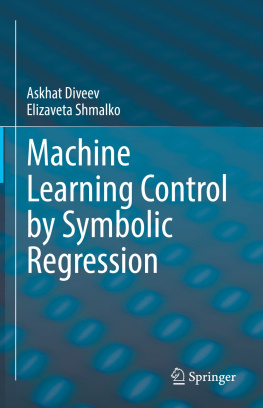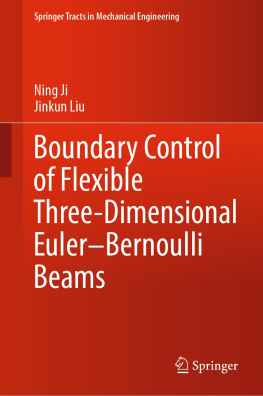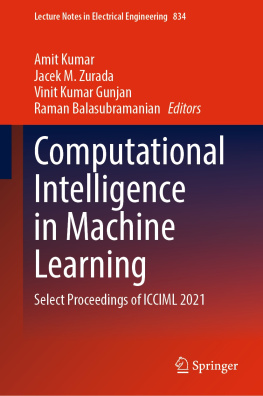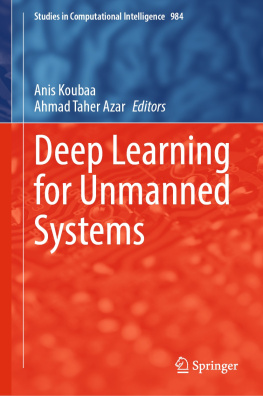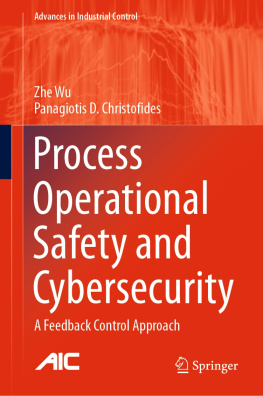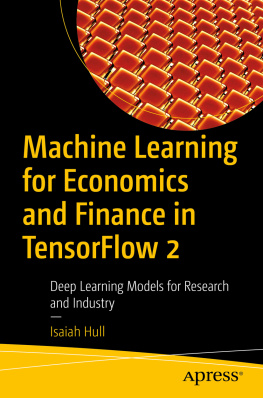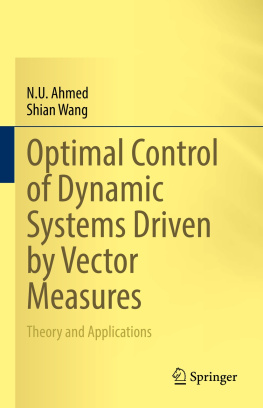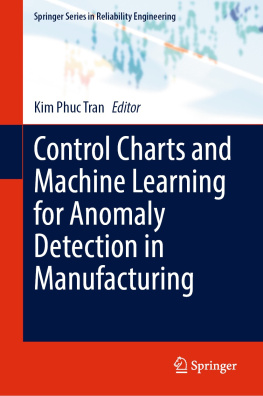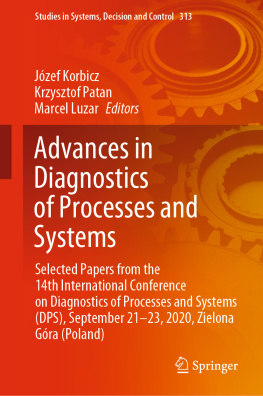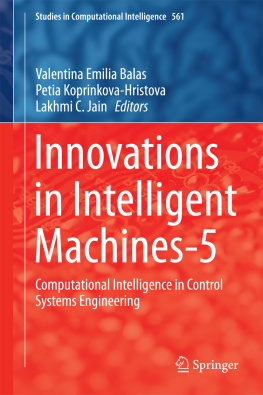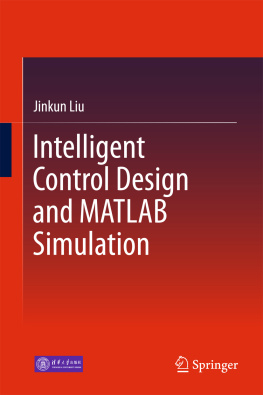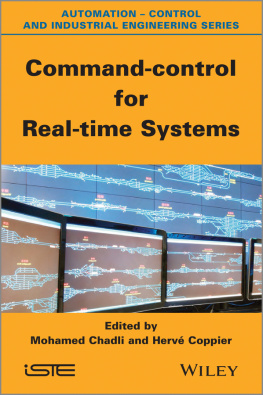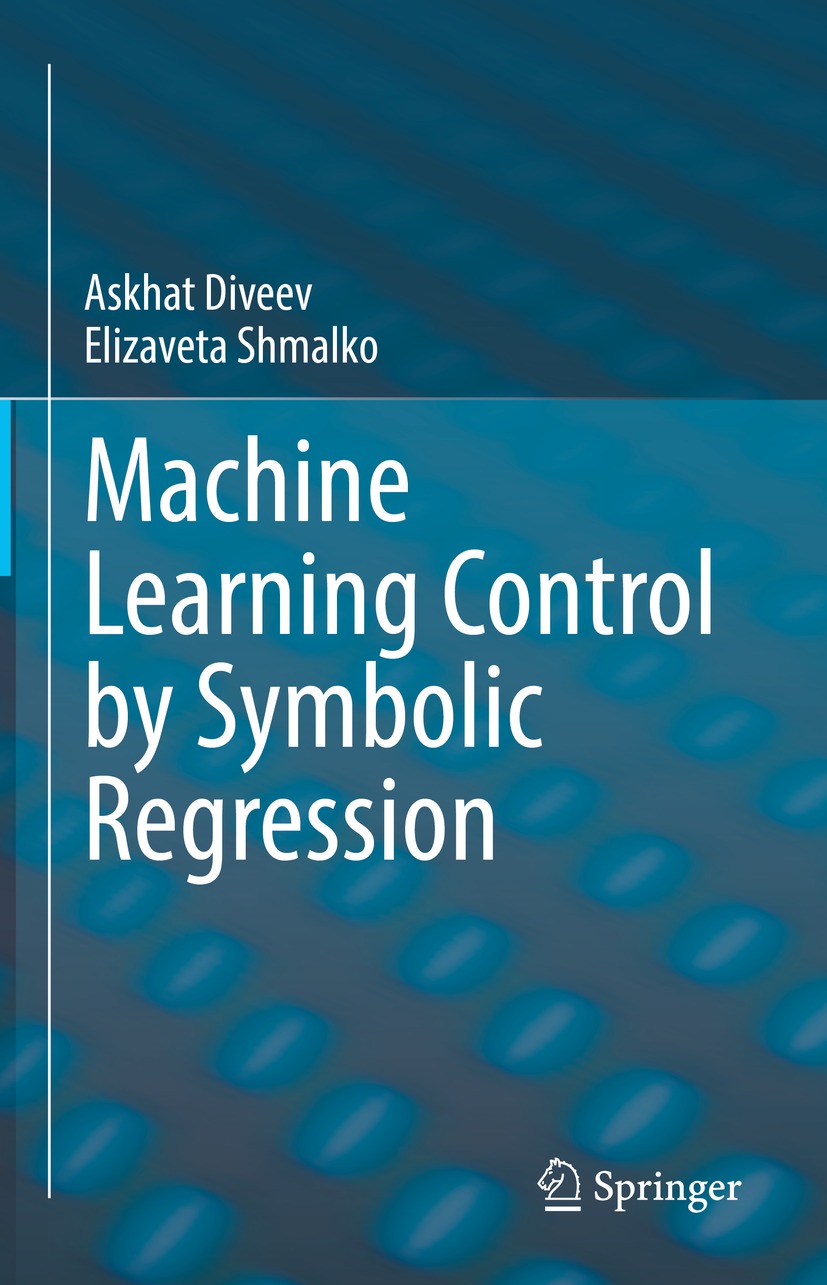Askhat Diveev
Federal Research Center Computer Science and Control, Russian Academy of Sciences (FRC CSC RAS), Moscow, Russia
Elizaveta Shmalko
Federal Research Center Computer Science and Control, Russian Academy of Sciences (FRC CSC RAS), Moscow, Russia
ISBN 978-3-030-83212-4 e-ISBN 978-3-030-83213-1
https://doi.org/10.1007/978-3-030-83213-1
The Editor(s) (if applicable) and The Author(s), under exclusive license to Springer Nature Switzerland AG 2021
This work is subject to copyright. All rights are solely and exclusively licensed by the Publisher, whether the whole or part of the material is concerned, specifically the rights of translation, reprinting, reuse of illustrations, recitation, broadcasting, reproduction on microfilms or in any other physical way, and transmission or information storage and retrieval, electronic adaptation, computer software, or by similar or dissimilar methodology now known or hereafter developed.
The use of general descriptive names, registered names, trademarks, service marks, etc. in this publication does not imply, even in the absence of a specific statement, that such names are exempt from the relevant protective laws and regulations and therefore free for general use.
The publisher, the authors and the editors are safe to assume that the advice and information in this book are believed to be true and accurate at the date of publication. Neither the publisher nor the authors or the editors give a warranty, expressed or implied, with respect to the material contained herein or for any errors or omissions that may have been made. The publisher remains neutral with regard to jurisdictional claims in published maps and institutional affiliations.
This Springer imprint is published by the registered company Springer Nature Switzerland AG
The registered company address is: Gewerbestrasse 11, 6330 Cham, Switzerland
Preface
As a reader of this book, you are interested in the creation of modern control systemsautomatic, capable of learning, and intelligentsuch that you are able to respond to the new challenges of modern technical development, with ubiquitous robotization and digitalization.
The theory of automatic control has gone through a long process of transformation, from a scattered set of control methods for mechanical, hydrodynamic, and other systems to fundamental science. Almost all scientific research in control has been carried out within the framework of studying the possibility of creating various innovative technical solutions from machine tools at the inception stage to automatic flying and space vehicles or nuclear power plants. The twentieth century is famous for the creation of automatic control systems for industrial complexes and production processes using computers. However, the twenty-first century brings new challenges associated with the emergence of universal objects, such as autonomous robots and robotic systems, capable of autonomously performing completely different tasks in different conditions and environments. Modern control systems must be able to quickly change, refine, and learn. This circumstance requires both the universalization and automation of the very process of developing control systems that are not tied to the physics of the control object, operating with laws and patterns that are valid for objects of any complexity and nature. Machine learning meets these new challenges. In this context, a new direction has recently appeared that implements the modern approach of machine learning in the field of control, called Machine Learning Control (MLC).
This book discusses machine approaches to solve control problems.
Today, the most common machine learning apparatus are the various neural networks. At first glance, it seems that a variety of neural network structures can satisfy any control problem. In fact, the structure of the neural network is determined by the developer and it is a given structure in which only parameters are configured, while the structure itself remains unchanged. So it is difficult to even guess whether this structure is optimal for a given task. In addition, for complex tasks, a neural network has a complex structure, and for a development engineer who is used to describing objects and systems with some functions that have physical meaning and geometric representation, working with a neural network seems to be a kind of black box.
This book aims to introduce to a wide range of readers to the possibilities of symbolic regression methods. Symbolic regression methods allow us to find functions in a form that engineers are familiar with. These methods can be considered as the universal tool for solving machine learning control problems. The variety of symbolic regression methods can automate the process of synthesis of control systems, but very few of them are used in this direction. This is due to a number of difficulties, such as non-numerical search space and the absence of a metric on it, the complexity of the program code and the absence of publicly available software packages, etc. Thus, the main purpose of this book is to show the accumulated world experience in the field of symbolic regression methods and their possibilities in terms of application to control theory and practice.
The more widely we distribute these technologies, the more valuable they will become. To unleash the potential of symbolic regression methods, we want to make them available to a wide range of researchers and applied engineers. Machine Learning Control by Symbolic Regression is written in a simple language accessible to a wide range of readers, but it does not ignore the complex points and mathematically rigorous formulations and justifications. Control system engineers, mathematicians, specialists in optimization, specialists in mathematics and combinatorics, machine learning specialists, software developers, and graduate students will find a lot of value in the pages of this book.
Askhat Diveev
Elizaveta Shmalko
Moscow, Russia
April, 2021

